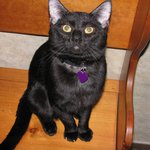MODSERIAL with support for more devices
Dependents: 1D-Pong BMT-K9_encoder BMT-K9-Regelaar programma_filter ... more
Check the cookbook page for more information: https://mbed.org/cookbook/MODSERIAL
Did you add a device? Please send a pull request so we can keep everything in one library instead of many copies. In that case also send a PM, since currently mbed does not inform of new pull requests. I will then also add you to the developers of this library so you can do other changes directly.
Revision 2:b936b4acbd92, committed 2010-11-21
- Comitter:
- AjK
- Date:
- Sun Nov 21 03:31:51 2010 +0000
- Parent:
- 1:b7e435fbfe8e
- Child:
- 3:0f10f536456e
- Commit message:
- 1.4
Changed in this revision
--- a/ChangeLog.c Sun Nov 21 02:15:07 2010 +0000
+++ b/ChangeLog.c Sun Nov 21 03:31:51 2010 +0000
@@ -1,5 +1,21 @@
/* $Id:$
+
+1.3 - 21/11/2010
+
+ * Fixed a macro problem with txIsBusy()
+ * Started adding code to use "block data" sending using DMA
+1.2 - 21/11/2010
+
+ * Removed unsed variables from flushBuffer()
+ * Fixed a bug where both RX AND TX fifos are cleared/reset
+ when just TX OR RX should be cleared.
+ * Fixed a bug that cleared IIR when in fact it should be left
+ alone so that any pending interrupt after flush is handled.
+ * Merged setBase() into init() as it wasn't required anywhere else.
+ * Changed init() to enforce _uidx is set by Serial to define the _base
+ address of the Uart in use.
+
1.1 - 20/11/2010
* Added this file
--- a/FLUSH.cpp Sun Nov 21 02:15:07 2010 +0000
+++ b/FLUSH.cpp Sun Nov 21 03:31:51 2010 +0000
@@ -28,9 +28,6 @@
void
MODSERIAL::flushBuffer(IrqType type)
{
- volatile char c __attribute__((unused));
- volatile uint32_t iir __attribute__((unused));
-
uint32_t ier = _IER;
switch(type) {
case TxIrq: _IER &= ~(1UL << 1); break;
@@ -40,9 +37,10 @@
buffer_out[type] = 0;
buffer_count[type] = 0;
buffer_overflow[type] = 0;
- _FCR = MODSERIAL_FIFO_RX_RESET | MODSERIAL_FIFO_TX_RESET;
- _FCR = MODSERIAL_FIFO_ENABLE;
- iir = _IIR;
+ switch(type) {
+ case TxIrq: _FCR = MODSERIAL_FIFO_TX_RESET; break;
+ case RxIrq: _FCR = MODSERIAL_FIFO_RX_RESET; break;
+ }
_IER = ier;
}
--- a/INIT.cpp Sun Nov 21 02:15:07 2010 +0000
+++ b/INIT.cpp Sun Nov 21 03:31:51 2010 +0000
@@ -30,7 +30,13 @@
{
disableIrq();
- setBase();
+ switch(_uidx) {
+ case 0: _base = LPC_UART0; break;
+ case 1: _base = LPC_UART1; break;
+ case 2: _base = LPC_UART2; break;
+ case 3: _base = LPC_UART3; break;
+ default : _base = NULL; break;
+ }
if (_base != NULL) {
buffer_size[RxIrq] = rxSize;
@@ -39,6 +45,7 @@
buffer_out[RxIrq] = 0;
buffer_count[RxIrq] = 0;
buffer_overflow[RxIrq] = 0;
+ dmaInUse[RxIrq] = -1;
Serial::attach(this, &MODSERIAL::isr_rx, Serial::RxIrq);
buffer_size[TxIrq] = txSize;
@@ -47,8 +54,12 @@
buffer_out[TxIrq] = 0;
buffer_count[TxIrq] = 0;
buffer_overflow[TxIrq] = 0;
+ dmaInUse[TxIrq] = -1;
Serial::attach(this, &MODSERIAL::isr_tx, Serial::TxIrq);
}
+ else {
+ error("MODSERIAL must have a defined UART to function.");
+ }
if (!txBufferSane()) {
error("Failed to allocate memory for TX buffer");
@@ -63,16 +74,4 @@
enableIrq();
}
-void
-MODSERIAL::setBase(void)
-{
- switch(_uidx) {
- case 0: _base = LPC_UART0; break;
- case 1: _base = LPC_UART1; break;
- case 2: _base = LPC_UART2; break;
- case 3: _base = LPC_UART3; break;
- default : _base = NULL; break;
- }
-}
-
}; // namespace AjK ends
--- a/ISR_RX.cpp Sun Nov 21 02:15:07 2010 +0000
+++ b/ISR_RX.cpp Sun Nov 21 03:31:51 2010 +0000
@@ -28,7 +28,9 @@
void
MODSERIAL::isr_rx(void)
{
- if (_base) {
+ if (! _base ) return;
+
+ if ( dmaInUse[RxIrq] == NotInUse ) {
while( MODSERIAL_RBR_HAS_DATA ) {
rxc = (char)(_RBR & 0xFF);
if ( MODSERIAL_RX_BUFFER_FULL ) {
--- a/ISR_TX.cpp Sun Nov 21 02:15:07 2010 +0000
+++ b/ISR_TX.cpp Sun Nov 21 03:31:51 2010 +0000
@@ -29,7 +29,9 @@
void
MODSERIAL::isr_tx(void)
{
- if (_base) {
+ if (! _base ) return;
+
+ if (dmaInUse[TxIrq] == NotInUse ) {
while (! MODSERIAL_TX_BUFFER_EMPTY && MODSERIAL_THR_HAS_SPACE ) {
_THR = txc = (uint8_t)(buffer[TxIrq][buffer_out[TxIrq]]);
buffer_count[TxIrq]--;
--- a/MODSERIAL.cpp Sun Nov 21 02:15:07 2010 +0000
+++ b/MODSERIAL.cpp Sun Nov 21 03:31:51 2010 +0000
@@ -71,6 +71,12 @@
return MODSERIAL_RX_BUFFER_EMPTY;
}
+bool
+MODSERIAL::txIsBusy(void)
+{
+ return (_LSR & (3UL << 5) == 0) ? true : false;
+}
+
void
MODSERIAL::disableIrq(void)
{
--- a/MODSERIAL.h Sun Nov 21 02:15:07 2010 +0000
+++ b/MODSERIAL.h Sun Nov 21 03:31:51 2010 +0000
@@ -134,6 +134,19 @@
, BufferOversize = -2 /*!< Oversized buffer. */
};
+ //! DMA channels.
+ enum dmaChannel {
+ NotInUse = -1 /*!< DMA not in use */
+ , Channel0 = 0 /*!< Channel 0 */
+ , Channel1 /*!< Channel 1 */
+ , Channel2 /*!< Channel 2 */
+ , Channel3 /*!< Channel 3 */
+ , Channel4 /*!< Channel 4 */
+ , Channel5 /*!< Channel 5 */
+ , Channel6 /*!< Channel 6 */
+ , Channel7 /*!< Channel 7 */
+ };
+
/**
* The MODSERIAL constructor is used to initialise the serial object.
*
@@ -549,7 +562,7 @@
* @ingroup API
* @return bool
*/
- bool txIsBusy(void) { return (_LSR & (3UL << 5) == 0) ? true : false; }
+ bool txIsBusy(void);
#if 0 // Inhereted from Serial/Stream, for documentation only
/**
@@ -650,6 +663,12 @@
volatile int buffer_overflow[2];
/**
+ * DMA channel in use.
+ * @ingroup INTERNALS
+ */
+ volatile int dmaInUse[2];
+
+ /**
* Callback system.
* @ingroup INTERNALS
*/
@@ -706,13 +725,7 @@
* Overloaded virtual function.
*/
virtual int _getc() { return __getc(true); }
-
- /**
- * Set's the Uart base pointer.
- * @ingroup INTERNALS
- */
- void setBase(void);
-
+
/**
* Function: init
* Initialize the MODSERIAL object
--- a/PUTC.cpp Sun Nov 21 02:15:07 2010 +0000
+++ b/PUTC.cpp Sun Nov 21 03:31:51 2010 +0000
@@ -29,24 +29,26 @@
MODSERIAL::__putc(int c, bool block) {
uint32_t lsr = (uint32_t)*((char *)_base + MODSERIAL_LSR);
- if (lsr & 0x20 && MODSERIAL_TX_BUFFER_EMPTY ) {
- _THR = (uint32_t)c;
- }
- else {
- if (buffer[TxIrq] != (char *)NULL) {
- if (block) while ( MODSERIAL_TX_BUFFER_FULL ) ; // Blocks!
- else if( MODSERIAL_TX_BUFFER_FULL ) {
- buffer_overflow[TxIrq] = c; // Oh dear, no room in buffer.
- _isr[TxOvIrq].call();
- return -1;
+ if ( dmaInUse[TxIrq] == NotInUse ) {
+ if (lsr & 0x20 && MODSERIAL_TX_BUFFER_EMPTY ) {
+ _THR = (uint32_t)c;
+ }
+ else {
+ if (buffer[TxIrq] != (char *)NULL) {
+ if (block) while ( MODSERIAL_TX_BUFFER_FULL ) ; // Blocks!
+ else if( MODSERIAL_TX_BUFFER_FULL ) {
+ buffer_overflow[TxIrq] = c; // Oh dear, no room in buffer.
+ _isr[TxOvIrq].call();
+ return -1;
+ }
+ buffer[TxIrq][buffer_in[TxIrq]] = c;
+ buffer_count[TxIrq]++;
+ buffer_in[TxIrq]++;
+ if (buffer_in[TxIrq] >= buffer_size[TxIrq]) {
+ buffer_in[TxIrq] = 0;
+ }
+ _IER |= 0x2;
}
- buffer[TxIrq][buffer_in[TxIrq]] = c;
- buffer_count[TxIrq]++;
- buffer_in[TxIrq]++;
- if (buffer_in[TxIrq] >= buffer_size[TxIrq]) {
- buffer_in[TxIrq] = 0;
- }
- _IER |= 0x2;
}
}
--- a/example.cpp Sun Nov 21 02:15:07 2010 +0000
+++ b/example.cpp Sun Nov 21 03:31:51 2010 +0000
@@ -54,7 +54,7 @@
// Ensure the baud rate for the PC "USB" serial is much
// higher than "uart" baud rate below.
- pc.baud(115200);
+ pc.baud(PC_BAUD);
// Use a deliberatly slow baud to fill up the TX buffer
uart.baud(1200);
 Erik -
Erik -




